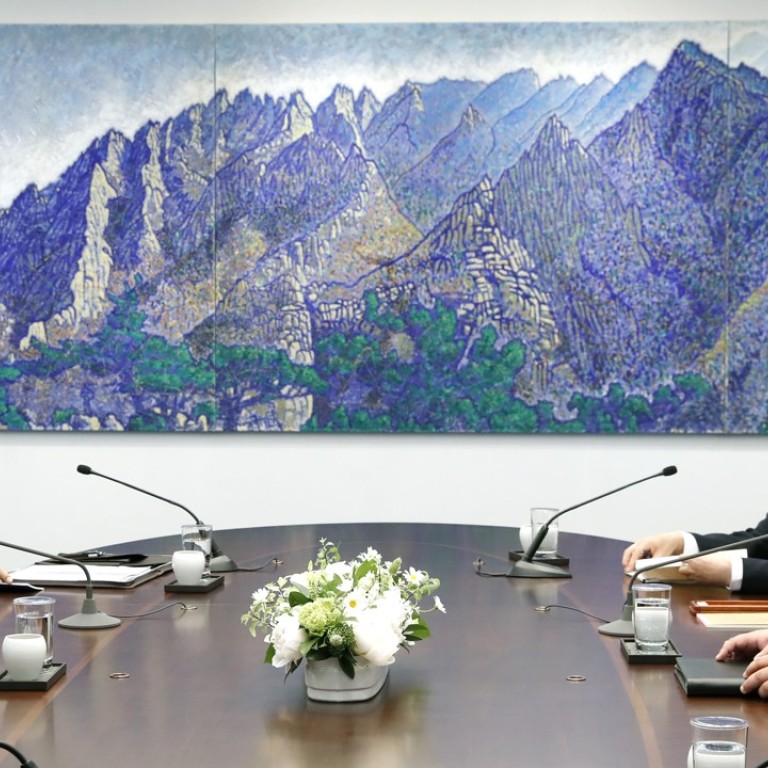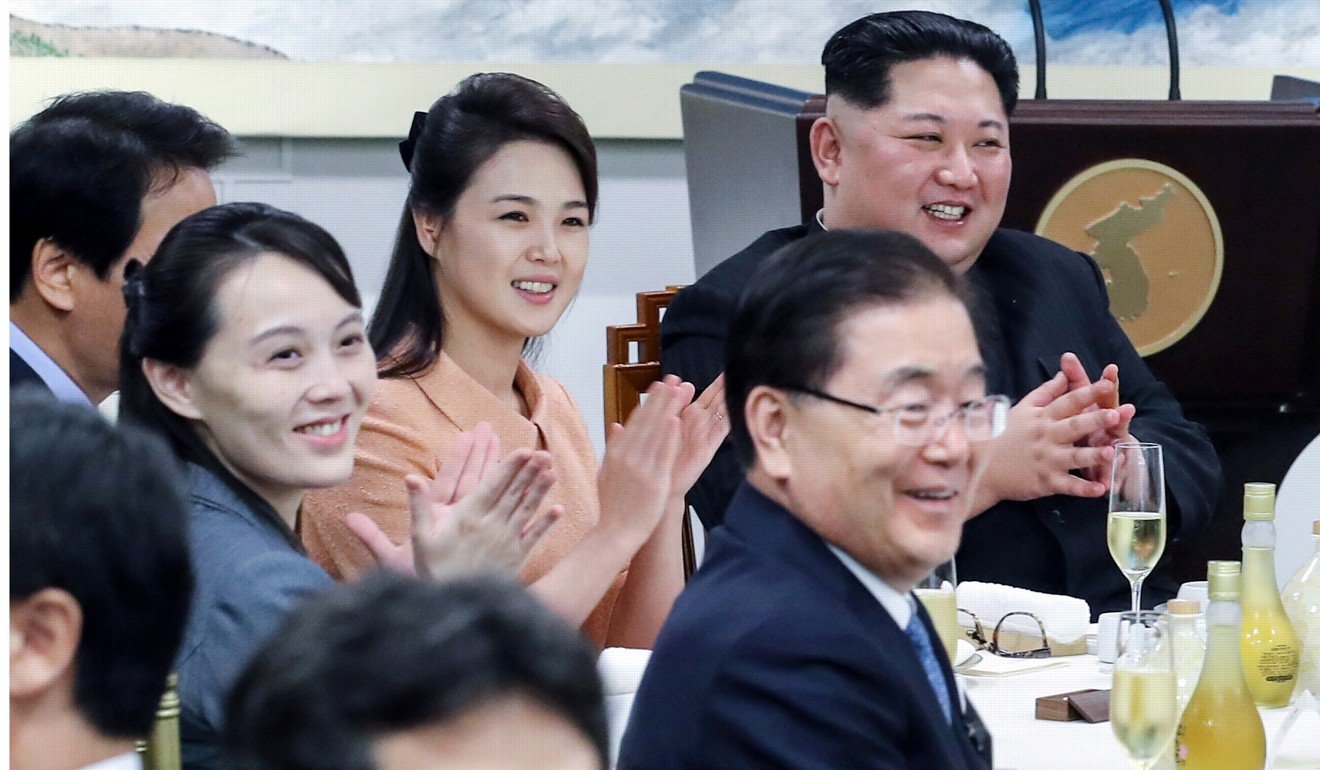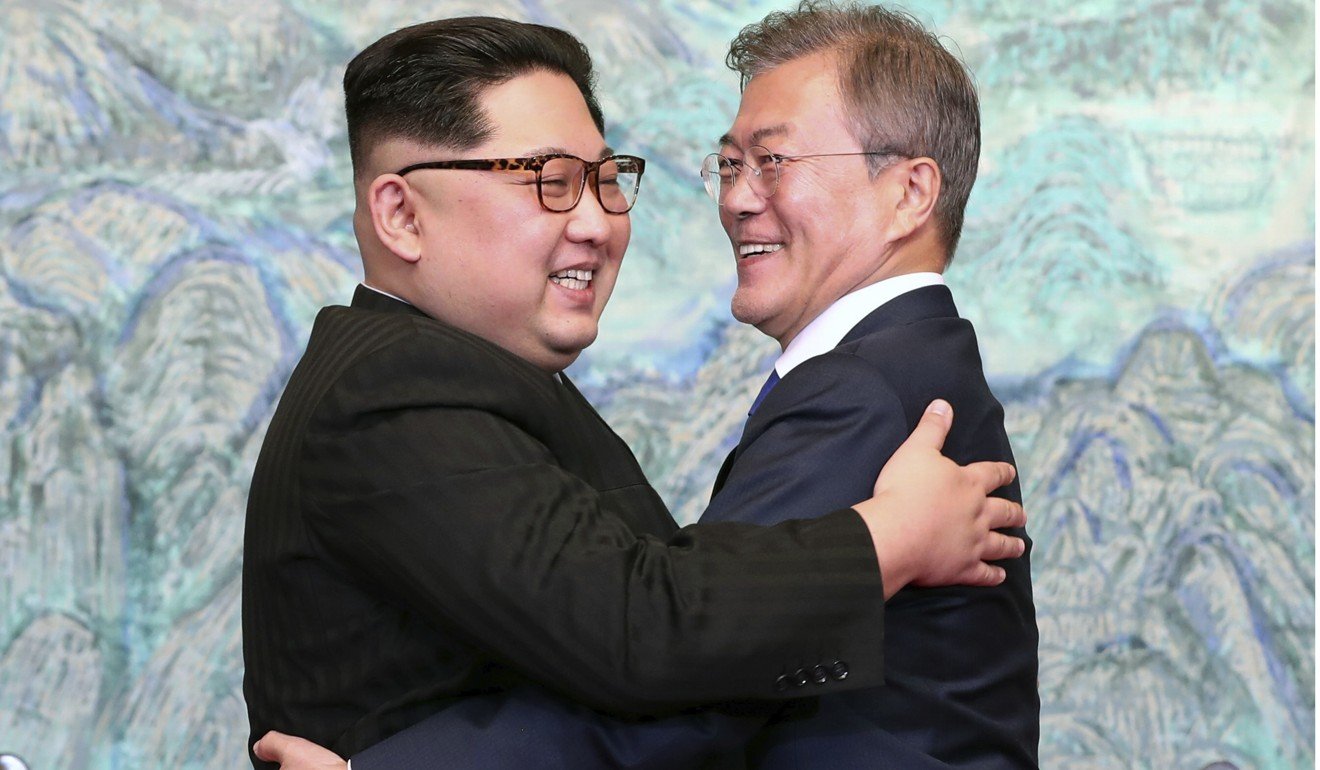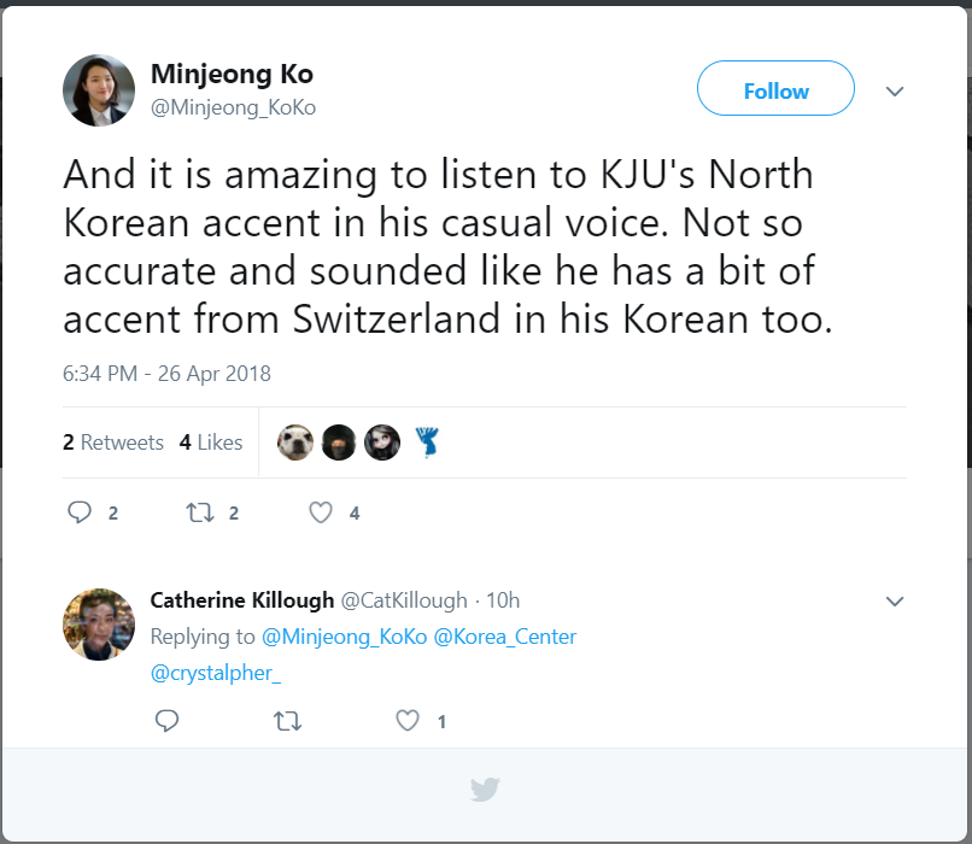
Hang on, what language is Kim Jong-un speaking?
Livestreaming reveals that the North Korean leader has a unique ‘Swiss-influenced’ accent, a result of his years studying at a German-language boarding school near Bern
While all eyes have been on the historic summit meeting between the two Koreas, those who kept their ears cocked were in for a surprise.
As Kim talks peace, silent rage of Japanese abductees’ families
Kim spent his formative years studying at a German language boarding school near Bern, Switzerland, where he lived under the pseudonym “Pak-un” from the age of 15, which explains his unusual accent.
Differences between North and South Korean saturi, or dialects, have long been viewed as a major barrier for North Korean defectors seeking to assimilate into South Korean society. Many defectors claim that their accents, different vocabularies and colloquialisms have made them outsiders; others learn to speak the standard Seoul or Gyeonggi dialect in order to fit in.
Why Kim’s China visit raises – and dashes – hopes for Trump summit
“The biggest issues with communication between North and South Koreans tend to be colloquialisms and English loanwords. South Korean slang, particularly internet slang, usually involves words from English or other languages, or could be abbreviations of longer Korean phrases,” said Jenna Gibson, director of communications at the Korea Economic Institute.
“For North Korean defectors who make it to the South, one of the hardest issues is English loanwords. South Koreans use Koreanised English quite often, particularly for words related to technology such as ‘computer’ and ‘internet’. In North Korea, to the extent that ordinary people are even exposed to those things, they would use a Korean version, or in some cases Russian loanwords.”

Although ordinary North Koreans say South Koreans have trouble understanding their speech even though they both technically speak the same language, the two sides pointedly refrain from bringing along interpreters at high-level official meetings such as Friday’s. There were no interpreters this time, just as there weren’t any in talks in 2000 and 2007, when Kim’s father met with South Korean presidents Kim Dae-jung and Roh Moo-hyun. But languages in the two Koreas have diverged further since, with the South assimilating more English and foreign words in its spoken language as well as evolving its particular pop references in the past two decades, and the North using more Russian loanwords and developing a North Korea-specific vocabulary.
“It is extremely unlikely that the two delegations will be using a lot of English loanwords in their meeting, since it will be a very formal setting. But the elites who will be accompanying Kim are likely to have some training or exposure to English,” said Gibson. “Since this will be a first meeting, the two sides will be spending some time getting to know each other, and may not get so far into the weeds that they run into technical words that aren’t easily understood by both sides.”
Why can’t Japan and South Korea get past their battle scars?
Had Moon Jae-in attempted such a summit with Kim’s father, Kim Jong-il, the communication barrier would likely have been more pronounced. But because Kim Jong-un is a younger member of the elites, he might be more familiar with more recent loanwords and foreign dialects.
Exposure to pop culture from the South “can certainly help with some of the language issues”, said Gibson.

Moon and Kim, who shared a long private discussion before joining hands and walking over the 38th parallel, seemed to have no trouble understanding one another. They also had a long chat on a wooden bridge, again without any help.
WATCH: Kim Jong-un talks at inter-Korean summit
Some viewers noted the “straightforward” and concise nature of Kim’s cadence. “His voice sounds mature and conservative, like that of a much older man,” said Wonjin Yoon, a South Korean viewer. “Everyone thought he would sound like a little boy, but he was well-spoken, especially when he made the joke about bringing [North Korean] naengmyun [a traditional cold noodle dish] to South Korea. We were all surprised.”


